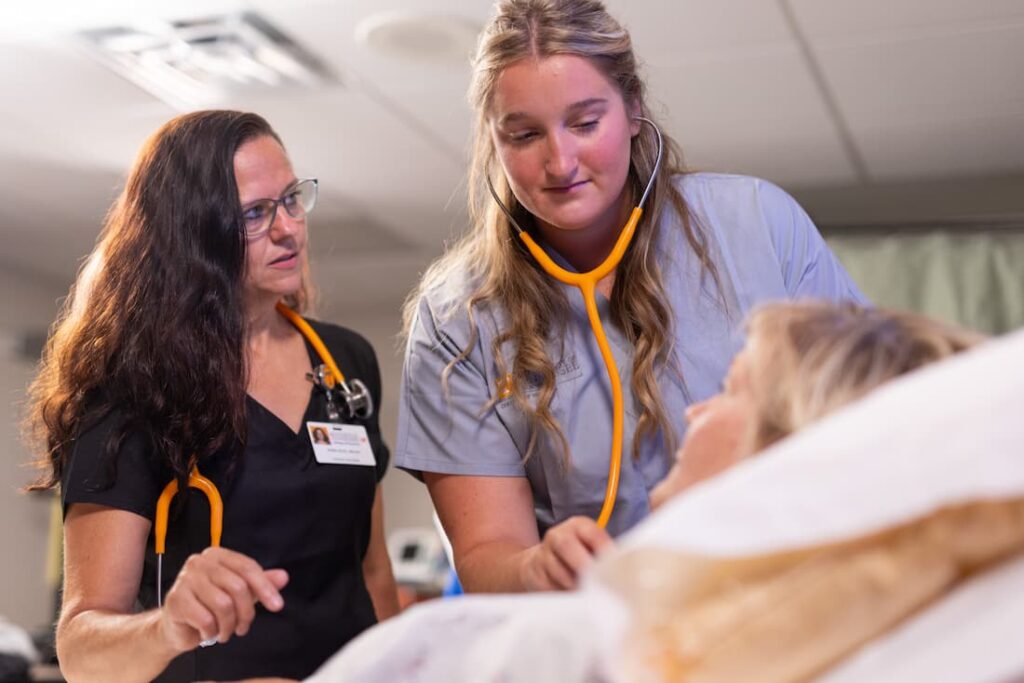
Data Science in Medicine Certificate
The Certificate in Data Science and Medicine bridges the gap between healthcare and technology, equipping you with the skills to apply data science in medical settings. As the healthcare industry increasingly relies on data-driven insights for diagnostics, treatment, and patient care, this program provides the foundation needed to analyze medical data, optimize clinical decisions, and contribute to innovative healthcare solutions.
Certificate Overview
The Data Science in Medicine Certificate equips you with the interdisciplinary skills needed to harness data for advancing healthcare and medical research. This program blends core principles of data science such as statistical analysis, machine learning, and data visualization with domain knowledge in biomedical sciences, clinical practices, and healthcare systems.
Designed for students with diverse interests like biology, medicine, public health, and computer science, this certificate offers hands-on experience with real-world datasets and tools commonly used in medical research and health analytics. You will learn to clean, analyze, and interpret medical data, build predictive models, and draw insights that support evidence-based decision-making and patient care.
Whether you’re aiming to support clinical research, work in health informatics, or bridge the gap between data and patient outcomes, this certificate provides a strong foundation in the growing field of data-driven medicine.


Why Data Science in Medicine?
Career Readiness
You will be equipped to apply data science techniques in healthcare settings, preparing them for roles in medical research, clinical decision-making, and AI-driven diagnostics. By integrating technical skills with healthcare knowledge, students will be ready to collaborate with medical professionals, tech developers, and policymakers to drive innovation in the medical field.
Real-Word Applications
You will engage in real-world projects, utilizing AI and data science tools to analyze medical data, develop predictive models, and solve pressing clinical challenges. Through case studies, simulations, and collaborations with healthcare organizations, you will gain experience working with real datasets, training AI models for diagnostic accuracy, and interpreting results to support medical decisions.
Innovative Curriculum
The program offers flexibility for you to focus on areas such as medical imaging, disease prevention, healthcare AI, or ethical considerations in data-driven medicine. Whether you are interested in leveraging machine learning for early disease detection, optimizing patient care strategies, or ensuring the responsible use of AI in healthcare, you can tailor coursework and projects to align with their career aspirations.
Discover Your Passion
The fusion of data science and medicine creates endless possibilities for innovation. From enhancing patient outcomes with predictive analytics to transforming diagnostics through AI and ensuring ethical AI practices in healthcare, this certificate provides the opportunity to explore and develop expertise.
Future-Ready Expertise
With AI and data science reshaping the healthcare industry, this certificate ensures students stay ahead of evolving trends. The curriculum adapts to emerging technologies and industry needs, preparing graduates to lead in the rapidly growing field of AI-driven healthcare.
Dynamic Learning Environment
The Data Science and Medicine Certificate program offers a dynamic learning environment where students engage with cutting-edge technology and the latest healthcare trends. By integrating interdisciplinary approaches, students are encouraged to explore various facets of healthcare and data science.
What can you do with a Data Science in Medicine certificate after graduation?
Here are just a few careers that can benefit from this certificate.
Healthcare Data Analyst
With a Data Science in Medicine Certificate, a healthcare data analyst can leverage statistical modeling and machine learning to analyze patient records, hospital efficiency, and treatment outcomes. This certification provides expertise in handling electronic health records (EHRs), using predictive analytics to improve patient care, and optimizing healthcare operations through data-driven decision-making.
Bioinformatics Specialist
A Data Science in Medicine Certificate equips a bioinformatics specialist with the skills to process and analyze complex biological and genetic datasets. Using computational tools, machine learning, and statistical techniques, they support medical research, drug discovery, and personalized medicine by identifying patterns in genomic and molecular data, helping advance treatment options and disease understanding.
Clinical Research Data Manager
Earning a Data Science in Medicine Certificate prepares clinical research data managers to oversee the collection, organization, and analysis of clinical trial data. With training in data wrangling, visualization, and regulatory compliance, they ensure the integrity of trial data, helping researchers and pharmaceutical companies generate reliable, data-driven medical advancements and treatment guidelines.
Medical AI/ML Engineer
A Data Science in Medicine Certificate provides foundational knowledge in artificial intelligence and machine learning, enabling medical AI/ML engineers to develop predictive models for disease diagnosis, treatment planning, and patient outcome forecasting. This expertise allows them to work with hospitals, biotech firms, and research labs to integrate AI-driven solutions into healthcare, improving efficiency and accuracy in medical decision-making.
Featured Courses
With a growing demand for data-driven healthcare solutions, this certificate prepares students for various roles.
AI 351
AI and Data-Driven Clinical Solutions and Projects
Students will embark on a comprehensive exploration of the transformative potential of artificial intelligence and data science in the medical and healthcare sectors. The course delves into the practical application of AI algorithms and data science tools for diagnosing diseases, predicting patient outcomes, optimizing treatment plans, and enhancing patient care. Students will be introduced to real-world clinical problems and collectively explore potential AI and data-driven solutions for those problems. This collaborative approach ensures that all students gain exposure to various clinical scenarios.
AI 451
Advanced Research in AI and Data-Driven Multidisciplinary Medical Applications
AI 451 is an advanced course exploring AI and data science in medicine through hands-on, collaborative research projects. Students will design, implement, and evaluate AI models for real-world clinical challenges while addressing ethical considerations and data privacy. Emphasizing practical experience, the course prepares students for leadership roles in AI-driven medical innovation.

Admissions and Aid
Learn more about admissions and aid by visiting the links below.

Request Information
Interested in learning more? Contact us!
Questions? We’re here to help.
If you have questions about the Applied Artificial Intelligence Certificate or navigating the application process, contact us.

